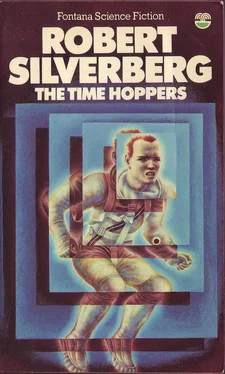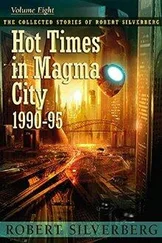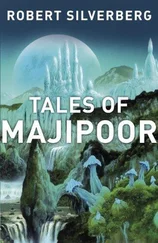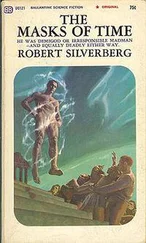It consisted of Brogg’s scholarly cullings of the annals of occultism. The UnderSec had compiled hundreds of accounts of mysterious appearances and apparitions, evidently under the assumption that they might represent time travellers of a pre-hopper phase. “I wish to suggest,” Brogg’s memorandum asserted, “that while the normal range of the time-transport apparatus lies within five hundred years of the present time, there have been instances when an overshoot resulted in transportation to a much earlier period.”
Maybe so, Quellen mused. He examined the evidence in a mood of detached curiosity.
Exhibit: the testimony of Giraldus Cambrensis, chronicler, born at the castle of Manorbier in Pembrokeshire, circa AD 1146. Giraldus offered the tale of a red-haired young man who turned up unexpectedly in the house of a knight known as Eliodore de Stakepole in western Wales:
This strange man said his name was Simon. He took the keys from the seneschal, and took over, also, the seneschal’s job; but he was so clever and finished a manager that nothing was ever lost or wanting in the house, which ever more became prosperous. If the master or mistress thought of something they would like, and did not even speak their thought, he read their minds and, hey presto, he got it, and no orders given him! He knew where they cached their gold and jewels. He would say to them: “Why this niggard care of your gold and silver? Is not life short? Then enjoy it, spend your gold, or you will die without enjoying life and the money you so cautiously hoard will do you no service.” He had an eye for the good opinion of menials and rustics, and he gave them the choicest food and drink . . . This strange red-haired man set foot in no church, used no breviary, and uttered no Catholic word or religious sentiment. He did not sleep in the manor house; but was always on hand to serve and spring forward to give what was wanted.
The chronicler related that the Stakepole children were curious about this mysterious Simon, and took to spying on him around the grounds of the manor house:
And, one night, peering out from behind a holly bush, when the strange man was, by chance, gazing hard into the waters of a still mill dam, they saw him moving his lips as if in converse with something unseen.
Which was duly reported to the elder Stakepole, and that virtuous knight instantly summoned Simon to his private chamber and gave him the sack:
As they took the keys from him, the lady of the manor asked him: “Who art thou?”
He replied: “I am begotten of the wife of a yokel of this parish by a demon who lay upon her in the shape of her own husband.”
He named the man who was so cuckolded, who was lately dead. The mother was still alive, and when strict enquiry was made of her, the thing was certified to be true by her public confession.
Interesting, Quellen thought. Where did Brogg get these things? It could very well have been that the red-haired “demon” was a hopper accidentally hurled too far in time. So, too, these other monkish accounts. The twelfth and thirteenth centuries, according to Brogg’s researches, had been a fertile era for the arrival of inexplicable strangers. Not all of them had arrived in human form, either. Quellen observed an extract from the Eulogium Historiarum prepared at Malmesbury Abbey, under the rubric AD 1171:
On the night of the birthday of the Lord, there were thunderings and lightnings of which the like had not been heard before. And at Andover, a certain priest, at midnight, in the presence of the whole congregation, was cast down by lightning, with no other injuries . . . but what looked like a pig was seen to run to and fro between his feet . . .
Brogg had ferreted out a parallel case in the Annales Francortim Regium of the monk Bertin, inscribed circa AD 1160. The entry for AD 856 declared:
In August, Teotogaudus, Bishop of Trier, with clerics and people was celebrating the office when a very dreadful cloud, with thunderstorms and lightning, terrified the whole congregation in the church, and deadened the sounds of the bells ringing in the tower. The whole building was filled with such dense darkness that one and another could hardly see or recognize his or her neighbour. On a sudden, there was seen a dog of immense size in a sudden opening of the floor or earth, and it ran to and fro around the altar.
Pigs? Dogs? Trial runs, perhaps, in the early days of the time-travel enterprise? Quellen wondered. The machine was still new and unreliable, he imagined, and hapless beasts had been placed within its field, and then had been spurted into the past to the consternation of the devout, devil-dreading citizens of the Middle Ages. A deplorable overshoot had taken the unhappy creatures back beyond the industrial revolution, but of course the operators of the machine could not have known the ultimate destinations of their passengers, unless they had had knowledge of these same records that Brogg had unearthed.
Nor did all Brogg’s cases involve medieval episodes. A good many sections of Exhibit B dealt with instances more recent, though still well outside the 1979 date that had been considered the extreme limit of pastward travel. Quellen gave heed to the case of the girl who appeared at the door of a cottage near Bristol, England, on the evening of 3 April 1817, and begged for food in what was described as “an unknown language’.
How did they know what she was begging for, then? Quellen asked himself. The spool did not answer. It informed him instead that the girl who spoke unintelligibly was brought before a magistrate, one Samuel Worral, who instead of arresting her on a vagrancy charge took her to his home. (Suspicious, Quellen thought!) He questioned her. She wrote replies in an unknown script whose characters looked like combs, birdcages, and frying pans. Linguists came to analyse her words. At length came one who described himself as “a gentleman from the East Indies’. He interrogated her in the Malay language and received comprehensible replies.
She was, he declared, the Princess Caraboo, kidnapped by pirates from her Javan home and carried off to sea, involving her in many adventures before at length she made her escape on the English shore. Through the medium of the “gentleman from the East Indies’, Princess Caraboo imparted many details of life in Java. Then a woman of Devonshire, a Mrs Willcocks, came forward and announced that the Princess was actually her own daughter Mary, born in 1791. Mary Will-cocks confessed her imposture and emigrated to America.
Brogg had appended the following speculation to the case of the Princess Caraboo:
“According to some authorities a multiple imposture was practised here. A girl mysteriously appeared. A man stepped forward and claimed to understand her language. An older woman declared that it was all a fraud. But the records are faulty. What if the girl was a visitor from the future, and the “gentleman from the East Indies” another hopper who shrewdly tried to pass her off as a Javan princess in order to keep her true origin from coming out, and the pretended mother yet another hopper who moved in to protect the girl when it looked likely that the Javan hoax would be exposed? How many time-travellers were living in England in 1817 anyway?” It seemed to Quellen that Brogg was being too credulous. He passed on to the next instance.
Cagliostro: appeared in London, then in Paris, speaking with an accent of an unidentifiable kind. Supernal powers. Aggressive, gifted, unconventional. Accused of being in actuality one Joseph Balsamo, a Sicilian criminal. The same never proven. Earned a good living in eighteenth-century Europe peddling alchemistic powders, love philtres, elixirs of youth, and other useful compounds. Grew careless, was imprisoned in the Bastille in 1785, escaped, visited other countries, was arrested again, died in prison, 1795. Fraud? Impostor? Time-traveller? It was wholly possible. Anything, thought Quellen sadly, was possible once you began giving credence to such evidence.
Читать дальше












